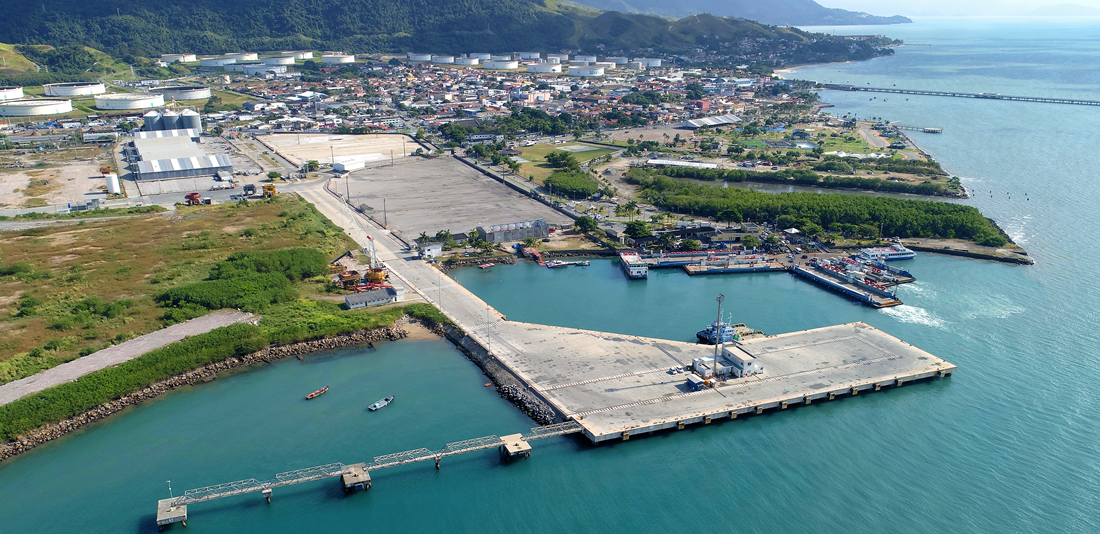
São Sebastião Port performs unprecedented bulk sugar export operation
Mar, 04, 2024 Posted by Gabriel MalheirosWeek 202410
For the first time in its history, the port of São Sebastião has taken part in exporting VHP sugar, also known as raw sugar, in bulk, one of the most prevalent products in the food industry. The first shipment was loaded onto the cargo ship “Aurélia,” which docked at the end of January expecting over 22,000 tonnes of the product. From that date onward, similar operations became frequent, with nearly a dozen other vessels calling at the terminal.
“This operation with bulk sugar is a milestone for the port since it marks the first time,” celebrates Ernesto Sampaio, CEO of the São Sebastião Dock Company, an autarchy linked to the Department of Environment, Infrastructure, and Logistics (Semil). “Bulk cargoes were previously only imported. Sugar used to be handled in bags, and this new form represents a paradigm shift,” added the CEO.
New Record
The good news season began with the announcement of a new record for cargo throughput by the São Sebastião Dock Company in 2023, at over 1 million tonnes. With a growth of 12% compared to 2022, revenue increased by 51%, equivalent to R$ 43.5 million.
The previous record, set in 2022, was 918 thousand tonnes and revenue stood at R$ 30.2 million.
Among the main cargoes transported are bulk soda ash, an essential raw material in the production of glass, and packaging, among others, with 343 thousand tonnes, followed by bagged sugar, with 194 thousand tonnes, malt for the brewing industry, with 106 thousand tonnes, and silicate, used in the manufacture of soap, adhesives, and mortars, with 50 thousand tonnes.
-
Ports and Terminals
Mar, 28, 2025
0
Megaterminal at the Port of Santos Sparks Calls for Competitive Balance—Here’s Why
-
Grains
Aug, 15, 2021
0
Paraná may restrict water grants to agriculture
-
Ports and Terminals
Jan, 27, 2022
0
Port of Paranaguá is the national leader in the export of soy oil
-
Economy
Jan, 05, 2023
0
Uruguay sees record high exports in 2022



